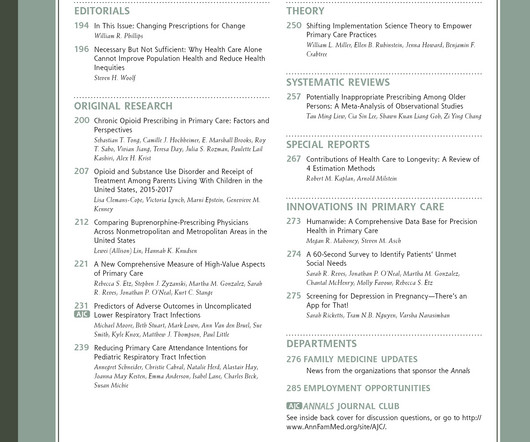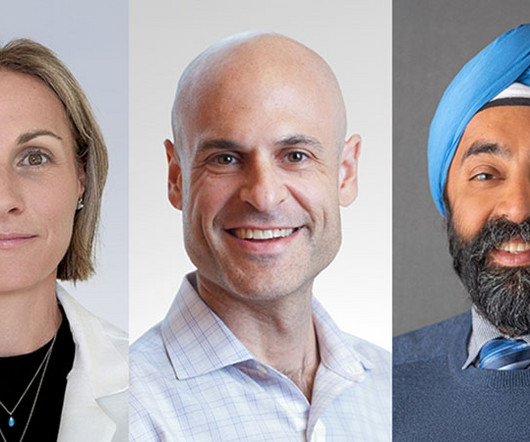Exploring the educational needs and preferences of physicians in pharmacogenomics in primary care practice [Education and training]
Annals of Family Medicine
NOVEMBER 20, 2024
Context Ten percent of patients using prescription drugs experience adverse drug events (ADE). One proposed reason is the lack of knowledge about PGx among clinicians slowing down the potential for clinical implementation, showing the main barrier to implementation is lack of healthcare professionals’ education.















Let's personalize your content